What Is La Niña And How Does It Affect Our Weather?
What is the weather phenomenon known as La Niña, how is it different from El Nino, and what does it mean for our weather? Find out!
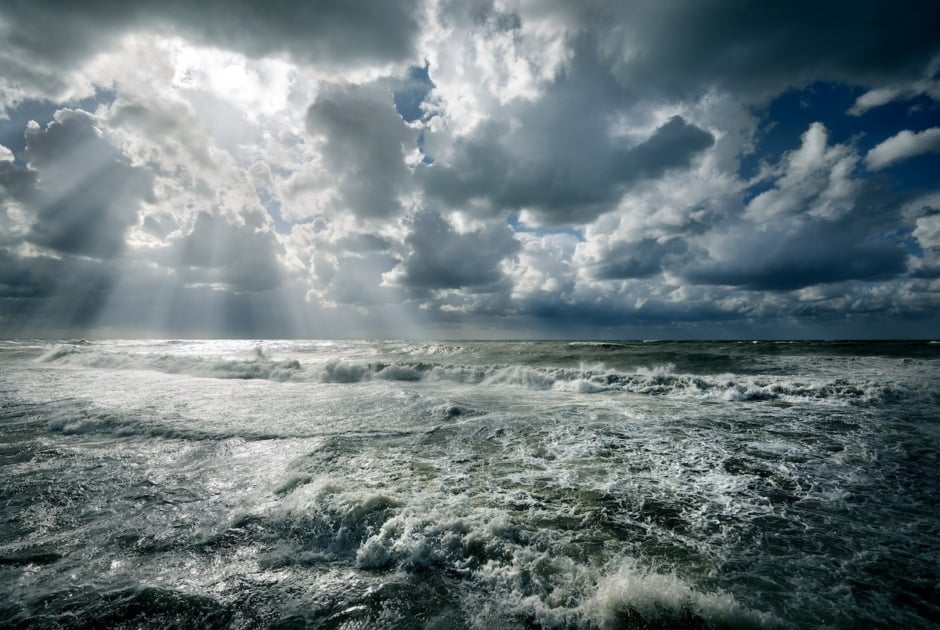
Weather forecasters spend a lot of time talking about something called an “El Niño,” a weather phenomenon that affects weather on a global scale. You may also hear some buzz about “La Niña,” El Niño’s opposite. But what is La Niña, and what does it mean for our weather?
What Is La Niña?
La Niña is part of a larger weather phenomenon known as El Niño Southern Oscillation, a fluctuation in the surface sea temperatures in the Pacific Ocean. While El Niño events feature unusually warm sea temperatures near the Equator, a La Niña is characterized by unusually cold water temperatures in the same region. La Niñas generally occur rather erratically, about once every three to five years, and typically last between 9 and 12 months. They often, but not always, follow on the tails of an El Niño.
Read: What Is El Nino?
In Spanish, “la niña” means “the little girl.” It got its name as a direct response to the phrase “El Niño,” which means “the little boy,” the Spanish diminutive often used to denote the Christ Child. El Niño was originally named in the 19th century, when Peruvian sailors noticed that every few years, around Christmastime, coastal waters warmed, and the Pacific Ocean current shifted southward. La Niña was eventually adopted to describe the opposite effect.
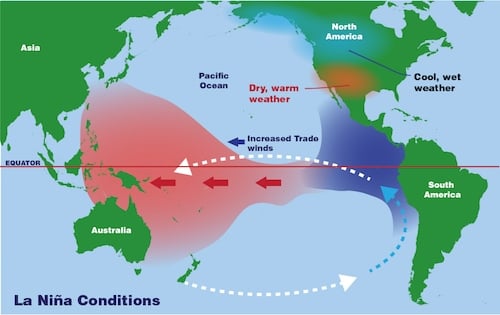
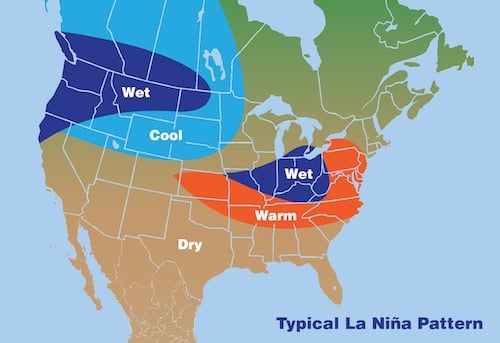
What Causes a La Niña?
Scientists are still trying to determine what causes Southern Oscillation. The abnormally warm ocean temperatures associated with an El Niño event often result in the subsequent cooling of a La Niña event, but the underlying cause of both conditions is still a mystery. During the last century, La Niñas have occurred in 1916, 1924, 1928, 1938, 1950, 1954, 1964, 1970, 1973, 1975, 1988, 1995, 1998, 2000, 2007, and 2010, usually beginning in the fall and continuing into the following spring. More recently, La Niñas occurred during the winter of 2020-2021 and continued until March 2023. El Nino developed in 2018-2019 and is forecast to return in 2023. Since 1975, La Niñas have been about half as frequent as El Niños.
How does La Niña affect the weather?
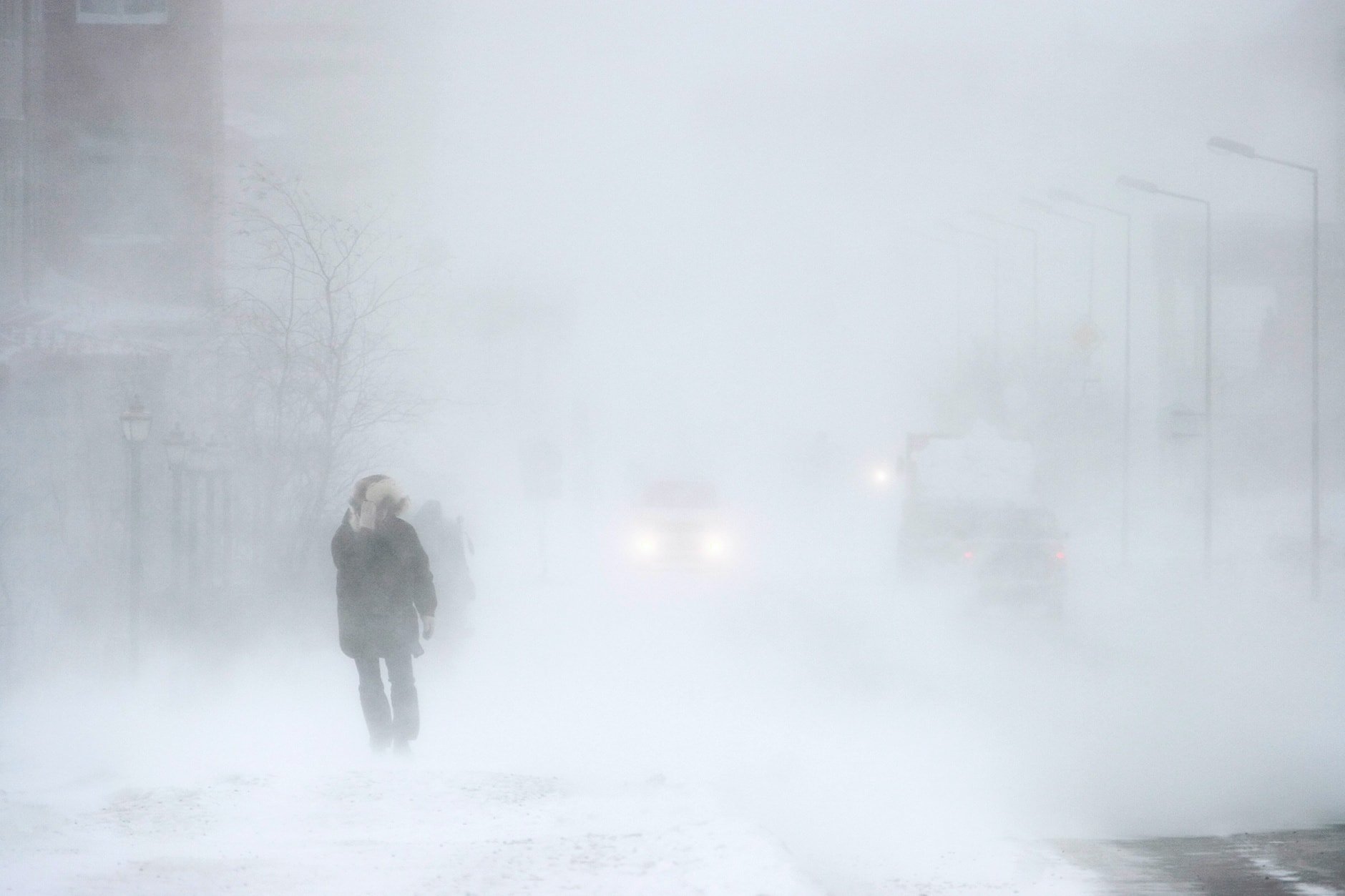
La Niña has the opposite effect on global weather as its brother. Whereas El Niño wreaks havoc on weather, often making wet places dry, and vice versa, La Niña basically magnifies the usual weather conditions. In the northeastern United States, where cold and snowy winters are the norm, La Niña causes even more cold and snow to descend, making for extremely brutal winters.
In the Pacific Northwest, La Niña causes things to be even wetter than usual, while arid Southwestern states often see drier than normal conditions. Things get really dangerous during the spring and summer of a La Niña, because tornado and hurricane seasons are often longer and more dangerous.
How long can a La Niña last?
The longest recorded La Niña lasted from the spring of 1973 through the spring of 1976, a period marked by drought conditions throughout much of the United States, while other parts of the world saw devastating flooding, with storms that claimed hundreds of thousands of lives. Don’t let the name fool you, La Niña is no sweet little girl!
This article was published by the Staff at FarmersAlmanac.com. Any questions? Contact us at [email protected].




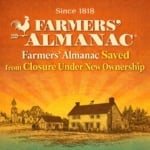


is la nina bad or good or neither is el nino bad or good or neither
USAclimatereporter – Both El Nino and La Nina can have positive effects in some areas and negative in others, depending on what kind of weather you want. They’re just different.
El Ninos tend to force the jet stream south, making the south much cooler and wetter than normal, meaning the north US and Canada is warmer. So what was so unusual about the la nina last winter? I thought they forced the cold air farther north (the opposite of el nino) shouldnt La Ninas cause us to have warm winters anyway? 2000 was our warmest winter on record and that was a La Nina year! Im confused
Even if you believe God created the earth and the rest of the universe, I believe, He/She probably has better things to do than worry about our weather. Don’t you think
that was probably all set into motion at the same time as he created our universe? We are so egotistical. Give thanks to God if you believe him, but don’t expect him to have time for the problems that you haved created for yourself. That’s why he gave us “free choice” as the Bible teaches.
Out here in the midwest we had horrible droughts. NOTHING grew! Unless it was in the melon family. Was this drought a result of El Nino or La Nina? What will next summer hold?
The Bible says God controls the rains and wind and everything weatherwise, so we are all just playing a guessing game. Yes, God is in control.
just want to say love the farmers almanac
OK SO THE WEATHER PREDICTORS THINK THAT THEY UNDERSTAND THE WEATHER AND CAN PREDICT IT , WRONG YOU ARE 97% RIGHT 3% OF THE TIME !! MY GUESS IS WE WATCH THE ANIMALS AND THEY WILL TELL YOU WHEN THE WEATHER IS GOING TO CHANGE , AFTER ALL THE SPEND 100% OF THERE TIME OUT IN THE OPEN THINK ABOUT IT!!!!
Well, all this subject (article and comments) are a kind of treason on Farmer’s Almanac, for sure! During decades the weather was no mistery to its editors in the US as in Brazil, were I live, there was a Folhinha Mariana that by unknown methods was a sure guide about the rains and dry seasons.
Today each time we know more (about any subject), we learn that actually we need to know much more. So we – at the end – know less.
I remember a Mark Twain quote about the weather that is each day more actual:
“Everybody talks about the weather but nobody does anything about…”
I think the people from a long time ago had it figured out. We cannot figure out El Nino and La Nina, with all of our sophisticated computers and incredible computer modeling. Those old timers didn’t have all the computer stuff to figure it out. They were settled in the fact that it was El Nino! The Christ! In other words, God is in control of the weather. He designed it. And, some things that God does we will never be able to figure out, simply because we are not as smart as He is.
Does this have anything to do with the 2012 prophecy predicted by the Mayan civilisation?
Fergi, No, Southern Oscillation has nothing to do with the Mayan calendar. We’ve known about it for more than 150 years, and it’s likely been happening for much, much longer than that. It’s just part of nature, like anything else.